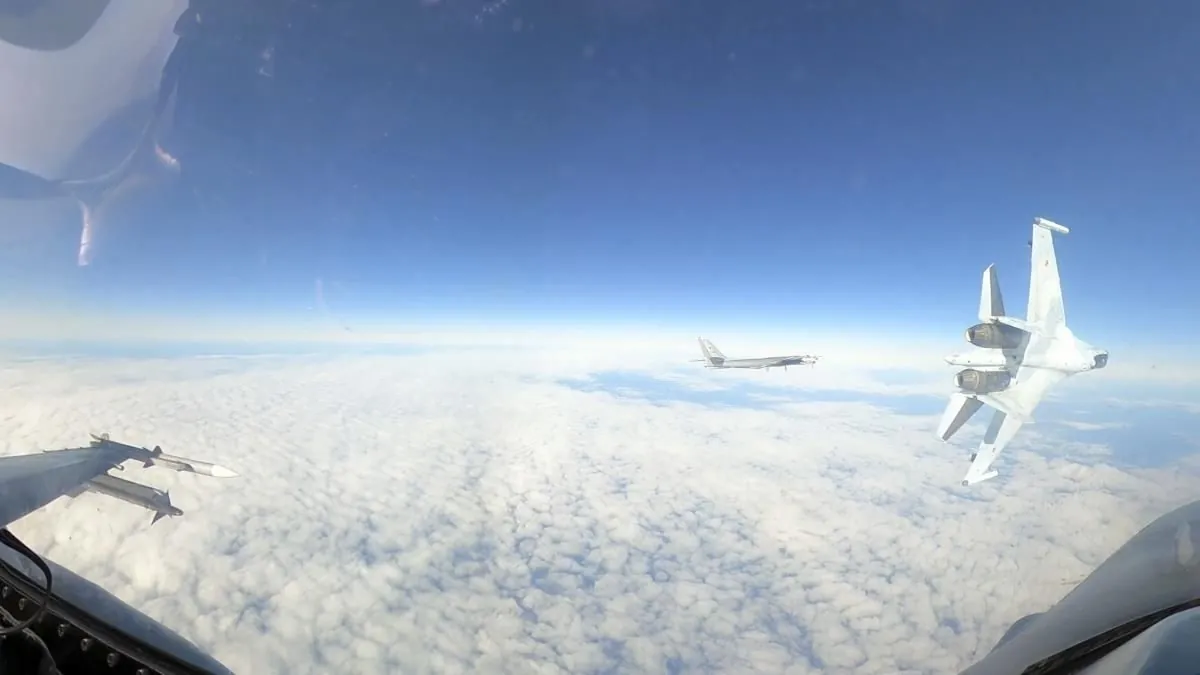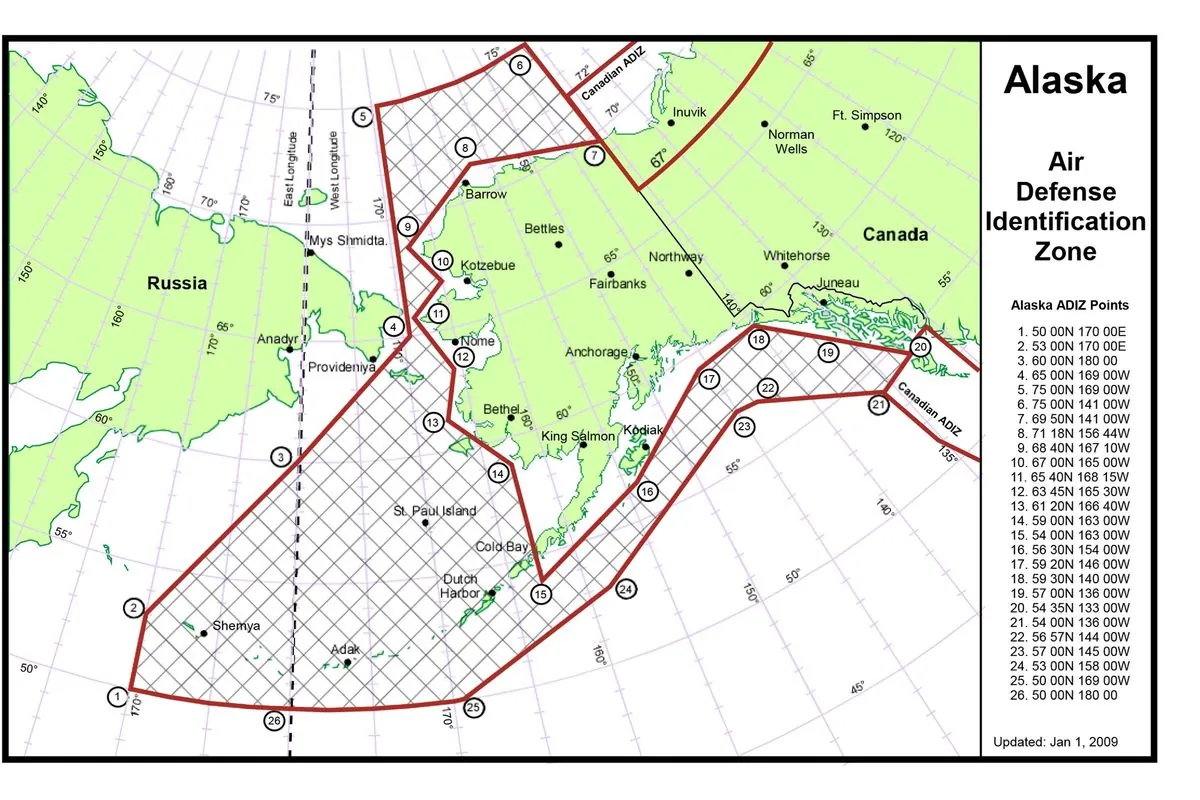Russian Jet's Risky Maneuver Near U.S. F-16 Sparks Concern Over Arctic Security
Military officials release video of a Russian Su-35 fighter jet's unsafe pass near a U.S. F-16 over Alaska. The incident highlights growing tensions and calls for increased U.S. military presence in the Arctic region.

On September 23, 2024, a concerning incident occurred in the skies near Alaska, involving a Russian Su-35 fighter jet and a U.S. Air Force F-16. Military officials have recently released video footage of the encounter, which took place in the Alaska Air Defense Identification Zone (ADIZ), an area extending beyond U.S. sovereign airspace.
The video, made public on October 1, 2024, shows the Russian aircraft approaching from behind and executing a dangerously close pass by the U.S. jet. This maneuver, occurring just feet away from the F-16, has been widely criticized for its recklessness.
Gen. Gregory Guillot, commander of the North American Aerospace Defense Command (NORAD) and U.S. Northern Command, strongly condemned the Russian pilot's actions. He stated, "The conduct of one Russian Su-35 was unsafe, unprofessional, and endangered all – not what you'd see in a professional air force." Guillot emphasized that the NORAD aircraft conducted a "safe and disciplined" routine during the interception.
This incident is part of a series of Russian incursions into the Alaska ADIZ, reflecting growing tensions in the Arctic region. The area has become increasingly important for geopolitical and economic reasons, particularly as climate change has led to increased accessibility of Arctic resources and shipping routes.

The close encounter follows recent joint military exercises conducted by Russia and China near Alaska in September 2024. These drills involved eight Russian military planes and four naval vessels, including two submarines. While none of the aircraft entered U.S. airspace, the proximity of these operations prompted a response from U.S. forces. Approximately 130 U.S. soldiers were temporarily deployed to Shemya Island, located about 1,931 kilometers southwest of Anchorage, along with mobile rocket launchers.
The Arctic's strategic significance has a long history. Alaska, purchased from Russia in 1867 for $7.2 million, became the 49th U.S. state on January 3, 1959. Initially referred to as "Seward's Folly," the Alaska Purchase has proven to be a valuable asset, particularly during the Cold War when its location was crucial for early warning systems.
U.S. Sen. Dan Sullivan, a Republican member of the U.S. Senate Armed Services Committee, expressed concern over the incident. He stated, "The reckless and unprofessional maneuvers of Russian fighter pilots — within just a few feet of our Alaska-based fighters — in Alaska's ADIZ on September 23 put the lives of our brave Airmen at risk and underscore the escalating aggression we're witnessing from dictators like Vladimir Putin." Sullivan called for an increased U.S. military presence in Alaska and the Arctic.
The incident highlights the complex geopolitical landscape of the Arctic region. The United States, Russia, and China have all shown growing interest in Arctic affairs, participating in forums such as the Arctic Council. This intergovernmental organization addresses issues faced by Arctic governments and indigenous people.
As the Northwest Passage becomes more navigable due to climate change, the strategic importance of the region is likely to increase further. The Alaska National Interest Lands Conservation Act of 1980, which protected over 100 million acres of Alaskan land, underscores the delicate balance between conservation and strategic interests in the region.
"The joint flights of Russian and Chinese bombers in international airspace off Alaska raise concerns about the growing cooperation between these nations in the Arctic region."
This recent encounter between Russian and U.S. aircraft serves as a reminder of the ongoing challenges in maintaining security and stability in the Arctic. As the region's importance continues to grow, diplomatic efforts and military preparedness will play crucial roles in shaping its future.


































